The Tattooist of Auschwitz
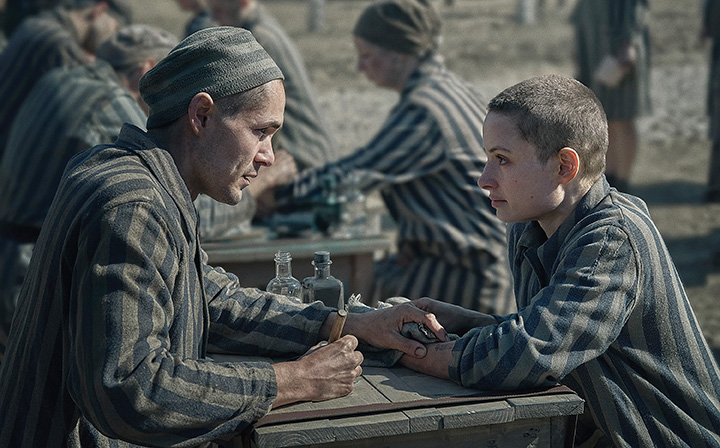
In Tali Shalom-Ezer’s new TV series, “The Tattooist of Auschwitz” — inspired by a true story — rising star Jonah Hauer-King plays Lali Sokolov, a Slovakian Jew who is deported to the camp and becomes one of its Tatowierer – prisoners who ink identification numbers onto the arms of fellow inmates.
In July 1942, a young Slovenian woman, Gita Furman (Anna Próchniak), chances to land at Lali’s tattoo station. He repeatedly apologizes for hurting her arm. Then against all odds, they fall deeply in love, vowing to help each other survive despite battling the direst of circumstances.
Along the way, Lali is brutalized by a sadistic SS officer, Stefan Baretski (Jonas Nay), who uses Lali’s feelings for Gita as a means to manipulate and torment him. The action jumps back and forth in time between the young Lali in Auschwitz-Birkenau and scenes with the survivor as an octogenarian, played by esteemed actor Harvey Keitel of “Reservoir Dogs” and “Pulp Fiction.”
Having recently been widowed upon Gita’s death in 2003, Keitel’s character is receptive when the Australian aspiring writer Heather Morris (Melanie Lynskey) approaches him to tell his story. During their long discussions several times a week over a few years, Lali relives his fractured memories and confronts the ghosts of his youth.
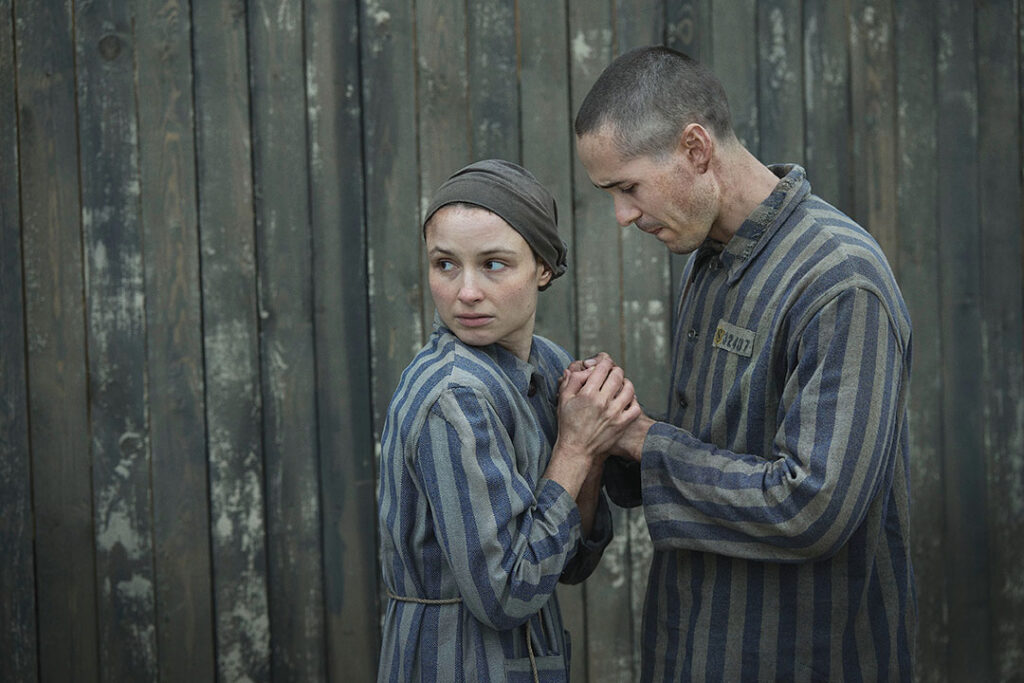
The six-episode series — based on Heather Morris’ 2018 bestselling novel of the same name —will be available to stream on Peacock on May 2.
It’s no accident that both Keitel, 84, and Hauer-King, 28, are Jewish in real life. Keitel, whose mother’s family is Romanian and whose father hails from Poland, grew up in New York and in 2001 married Canadian-Jewish actress Daphna Kastner in Jerusalem. Hauer-King, who was raised in London, had a Polish maternal grandfather who fled Europe for Canada as the Nazi threat loomed in 1929.
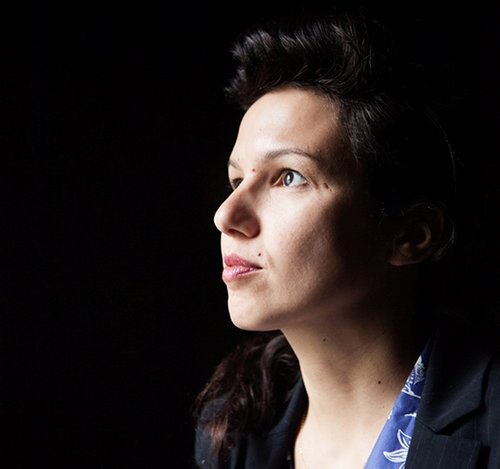
It was important to the series’ producers and director, Shalom-Ezer, that the main performers hired were Jewish. “It really felt appropriate. It felt right when we were trying to think about casting,” she said. “We were trying to find [actors] who would be able to capture the energy of their characters … It’s just such a chemistry, and it felt appropriate to choose.” Recently, JLiving participated in a Zoom interview with Shalom-Ezer, who was passionate about the project, and Hauer-King, who was intense while at times exuding a laid-back, charming demeanor. Both said that their own Judaism and family experiences during the Holocaust, in part, prompted their fervent desire to sign onto the show.
Hauer-King, who burst into popular culture last year with his turn as Prince Eric in the live-action Disney film adaptation of “The Little Mermaid,” recalled how his survivor grandfather never talked about the Holocaust. “I just remember it being this very dark cloud and this dark subject,” he said.
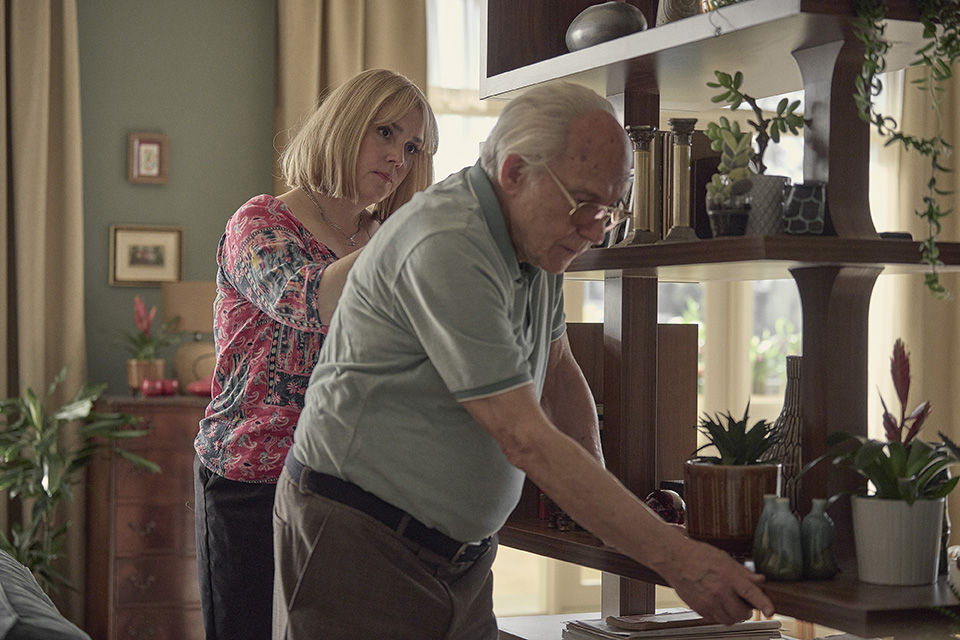
Shalom-Ezer, who was raised in Israel, said her grandfather wouldn’t talk about his experiences either. He had lost his first wife and daughter in the Shoah; Shalom-Ezer’s mother was named after that child. For her mother, it was “a focus of being the second daughter, second best,” Shalom-Ezer recalled.
The theme of trauma “is generally very interesting to me in all my projects,” added the director, who is best known for films such as “Princess” and “Surrogate.” The stories “can be about sexual abuse, or people dealing with a [crisis] who tried to heal themselves. That was my main attraction for this project.”
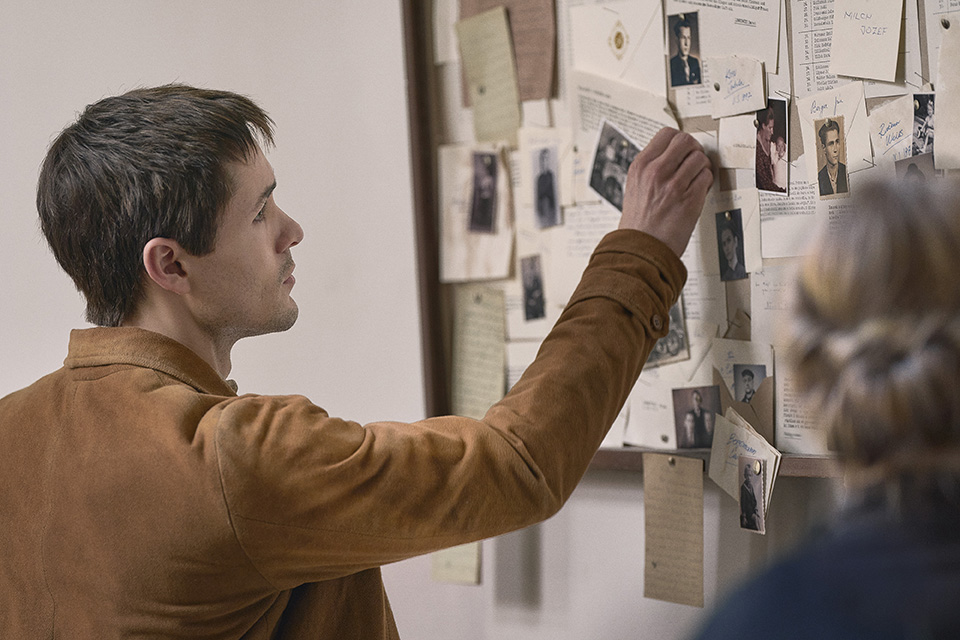
Hauer-King — who previously played a Jewish violinist in the movie “The Song of Names” — clinched the “Tattooist” job after a five-hour meeting with executive producer Claire Mundell.
“[My] dedication was the operative word,” Hauer-King said. “Maybe it’s my old-line Britishness. I couldn’t really tell her what a good actor I was because that didn’t feel particularly comfortable. But I did say how much this story meant to me, and obviously, I had my own personal connections to it through my Judaism. I also told her again what an extremely important story I thought it was and how important I thought that it should be told.”
To prepare for the shoot early last year, both the actor and the director immersed themselves in research. They visited the Auschwitz-Birkenau Memorial and Museum several times and listened to interviews with Lali, who died at 90 in 2006, as well as conversations with many other survivors. They read books such as Viktor Frankl’s “Man’s Search for Meaning,” Primo Levi’s “If This is a Man,” and Simon Wiesenthal’s “The Sunflower.” These books were “like our sacred texts,” Hauer-King said.
“I think ‘daunted’ was like a defining word for me before I accepted the role and during it as well, because it’s such an overwhelming thing to try to engage with on any level, let alone to try to recreate in the form of a piece of art,” he continued. “And so I think I was extremely daunted to the point when you question yourself, whether or not you’re even going to take it on … but the option is not to do it. And I don’t think that’s a better option.”
When Hauer-King first arrived on the shoot, thin from undergoing a regulated fast and with his head roughly shaven, he was amazed by the vast Auschwitz set, with its depiction of endless barracks surrounded by barbed wire fences.
“When it looks as real as it does, it’s very frightening,” he said. The scenes with the unhinged officer Baretski were among the more grueling sequences for both Shalom-Ezer and Hauer-King. In one episode, the Nazi brutally beats, kicks and strangles Lali for giving him what he thinks is bad advice about how to talk to women. Performing those kinds of scenes “was, without stating the obvious, very challenging,” the actor said.
He sees the character of Baretzki as both lonely and volatile. “It was a very, very complicated relationship that they had, where Baretzki was such a monster,” the actor said. “But he was also responsible for Lali’s survival, and that creates a very difficult, very challenging dynamic.”
Performing those kinds of scenes felt “terrible,” Hauer-King recalled. “Emotionally, it’s very difficult not to feel impacted because your mind and your body play tricks on you. And if someone is showing that kind of aggression to you, it’s very difficult for it not to create some quite extreme emotional responses. It was really important for me and Jonas at the end of every day to kind of look each other in the eye and hug each other and let that [animosity] stay on set.”
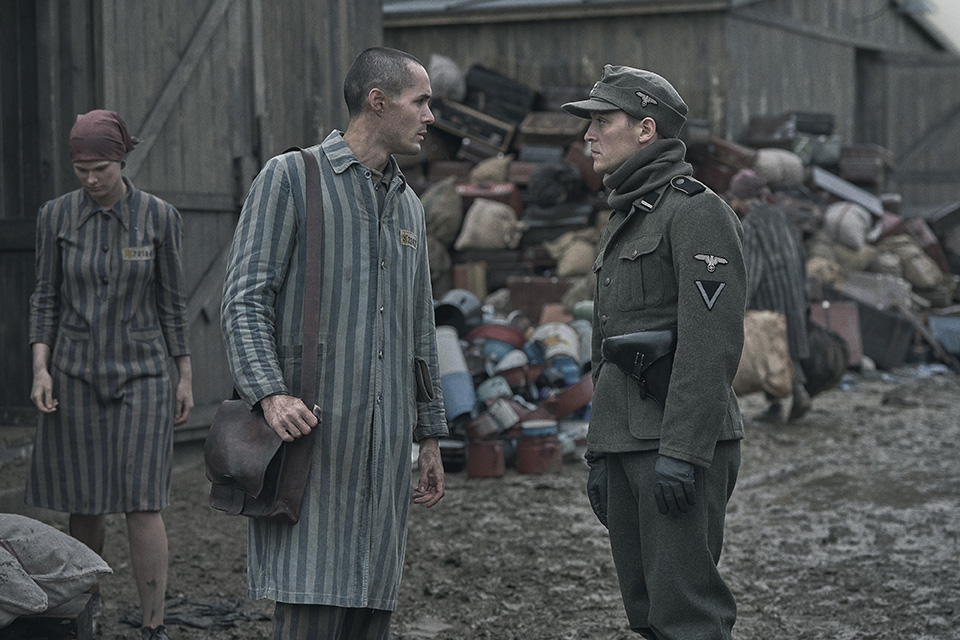
Shalom-Ezer recalled directing a scene in which Lali is in the hospital when she felt “really concerned” about the actor’s condition. “You were fasting for so long and you were so weak,” she told him during the Zoom conversation. “It was the end of the day, and you couldn’t carry [Gita] — physically you [couldn’t] do it.” The director sent him off to rest.
Back in 2018, the book version of “The Tattooist of Auschwitz” was taken to task for alleged inaccuracies about the camp — for example, in a report by the Auschwitz Memorial Research Centre, according to the British daily newspaper, The Guardian. But Morris, the author, once told the newspaper that “ninety-five percent of it is as it happened, researched and confirmed.”
For Shalom-Ezer, one moving moment came when she heard that Lali’s son, Gary Sokolov, who had perhaps been a bit hesitant to see the series, had finally viewed the show.
“He called me, and he was full of tears,” the director said. “He was crying, and he was grateful. He told me, ‘Thank you, thank you for creating this piece.’”
























